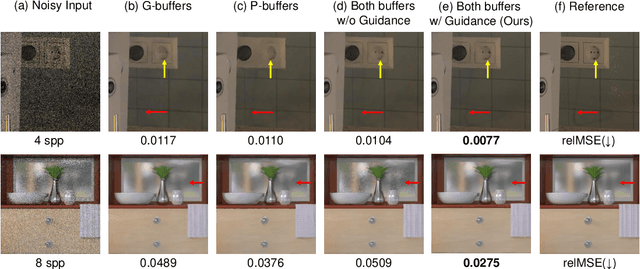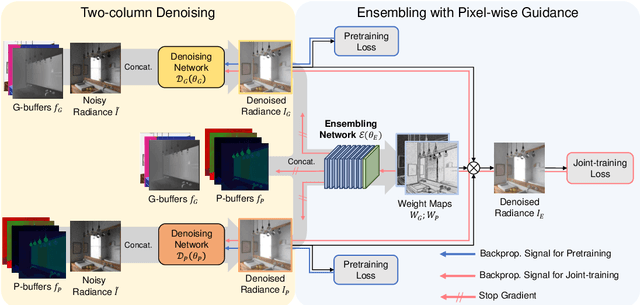Pixel-wise Guidance for Utilizing Auxiliary Features in Monte Carlo Denoising
Paper and Code
Apr 11, 2023



Auxiliary features such as geometric buffers (G-buffers) and path descriptors (P-buffers) have been shown to significantly improve Monte Carlo (MC) denoising. However, recent approaches implicitly learn to exploit auxiliary features for denoising, which could lead to insufficient utilization of each type of auxiliary features. To overcome such an issue, we propose a denoising framework that relies on an explicit pixel-wise guidance for utilizing auxiliary features. First, we train two denoisers, each trained by a different auxiliary feature (i.e., G-buffers or P-buffers). Then we design our ensembling network to obtain per-pixel ensembling weight maps, which represent pixel-wise guidance for which auxiliary feature should be dominant at reconstructing each individual pixel and use them to ensemble the two denoised results of our denosiers. We also propagate our pixel-wise guidance to the denoisers by jointly training the denoisers and the ensembling network, further guiding the denoisers to focus on regions where G-buffers or P-buffers are relatively important for denoising. Our result and show considerable improvement in denoising performance compared to the baseline denoising model using both G-buffers and P-buffers.
 Add to Chrome
Add to Chrome Add to Firefox
Add to Firefox Add to Edge
Add to Edge